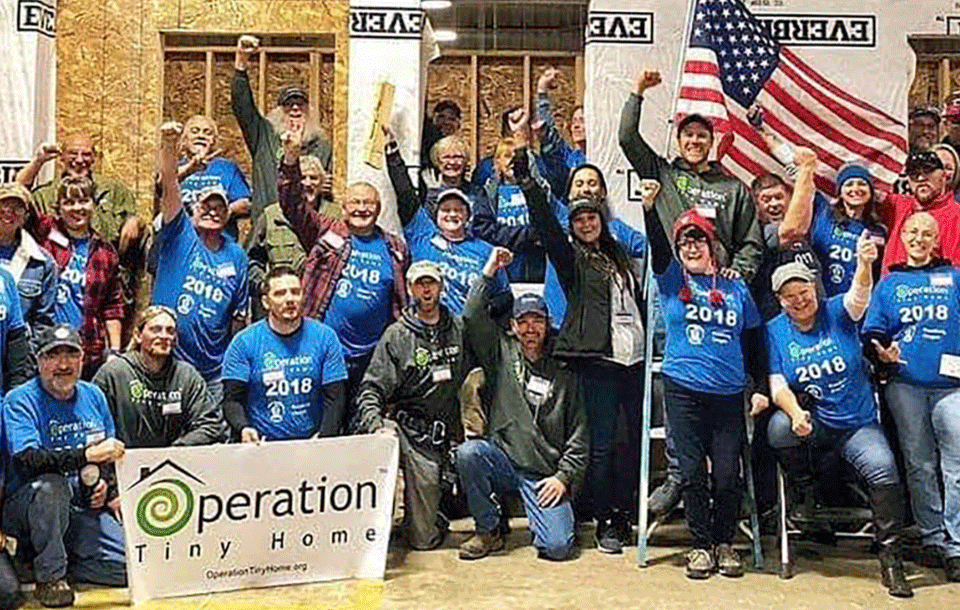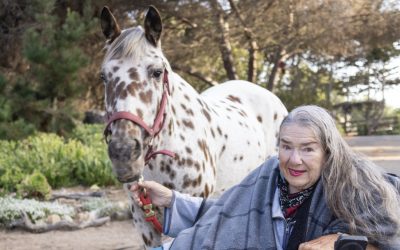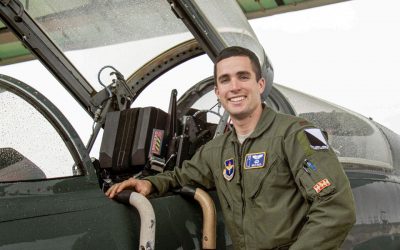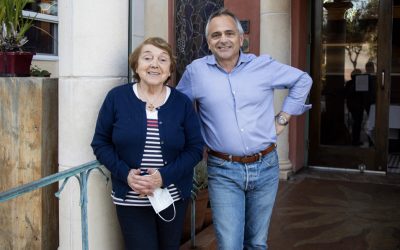“It’s amazing what we can get done in three days,” says Sandy Blair, a Santa Maria-based real estate agent during business hours and an Orcutt-based nonprofit executive the rest of her time. Picking up the phone to answer some last minute questions on her way to a “tiny home” construction site in Roseburg, OR on Nov. 10, she explains how a few volunteers and a lot of donated material can be whipped into shape surprisingly quickly, and have been, at projects like this across the country.
In this case with the specific objective of housing homeless female veterans, the tiny home concept is to create more durable constructs than a travel trailer, mobile within reason, but usually tied to a site with support infrastructure, that give someone enough space to call their own without all the trappings of a “section-eight” apartment.
Built on a heavy duty trailer chassis to the same building code specifications as an actual house, they can cost about $40,000 depending on donated material, Blair explains. While she was volunteering as part of a crew on Operation Tiny Home’s Roseburg project, Blair is the founder of Operation Women Empowered Build Strong (WEBS) here on the Central Coast.
Their 501c3 date of incorporation has some significance to Blair, a twenty-year Air Force veteran, coming as it did on September 11 this year. Blair explained that while events have moved quickly since work started on the nonprofit in June, and they’re now moving through the fundraising stage for their first big project in January, it took a while to get there.
In 2005, she explained she was discharged from the Armed Forces, and unemployed without resources in Florida, which she said felt like a foreign country after so many years stationed abroad. She and her children ended up living with her best friend—and one of the few people she knew who wasn’t on base—and life was so difficult, “I thought about checking out. I knew my kids would be alright with her, better taken care of than I could manage at the time. I never told my friend that, but it was on my mind. It’s something I can empathize with our brothers who come back from service and it’s easier just to leave their wives to deal with the kids. I get that.”
She didn’t begin to rebuild her life she said until her own mother had a health crisis and the family moved together back to Georgia.
“If there had been something like tiny homes at the time,” she said, “something with a base of support and a place to go, we wouldn’t have gone through that.”
And she’s committed to helping “fallen sisters in arms,” although she hastens to add that means fallen on hard times in civilian life not fallen in combat.
“There’s a lot of unique experience that women go through. We’re activity duty and combat veterans affected by military service too, not just spouses,” she said.
While going through the same events as their brothers in arms women face disproportionate sexual violence in the service as well, a contributing factor in making adaptation to civilian life that much harder. Compounding that, privacy and a sense of autonomy are often not respected in typical approaches to issues of homelessness.
“To someone used to living out of a footlocker, we don’t need much, just some safe space,” she said, explaining, “why tiny homes” during a recent trip to Los Osos collecting donated building materials. Respecting a person’s sense of self-sufficiency while providing a shelter that’s better than temporary accommodation is something donors and volunteers in building the structures can understand and support.
One thing the Air Force gave her she said is the ability to organize, although an added difficulty in civilian life is that putting together a project becomes personal and she doesn’t want the story of doing the work and getting people involved to be reliant on her own story. In the run-up to Veterans Day, Operation WEBS was collecting support from local businesses for a silent auction and fundraising gala to be held later in the month, hoped to be their first annual event.
As demonstrated by her trips all over the Central Coast to gather materials, support does not have to be in cash, spare materials or auctionable goods and services would do nicely as well. But the nonprofit is aiming to gather at least $40,000 to begin construction on the first of the locally produced tiny homes in January, during a volunteer build camp which will train anyone who wants to participate.
“It’s a hard concept to give people in a nutshell because there are so many layers,” Blair adds, “Women coming together on the job site can learn so much from each other too [although men are not excluded]. It might be the first time she’s ever picked up a drill.”
While she’d someday like to see an actual support community built in Northern Santa Barbara County, for the moment the mobile structures built by Operation WEBS will go to established communities on a waiting list.
“Once these homes are gifted to the tiny house community, a homeless woman veteran will be housed there through various veteran resources available locally and nationwide,” promises their mission statement.
More info is available at the website: operationwebs.org; via email operationwebs@gmail.com; or by calling Blair direct at (805) 351-2190.





